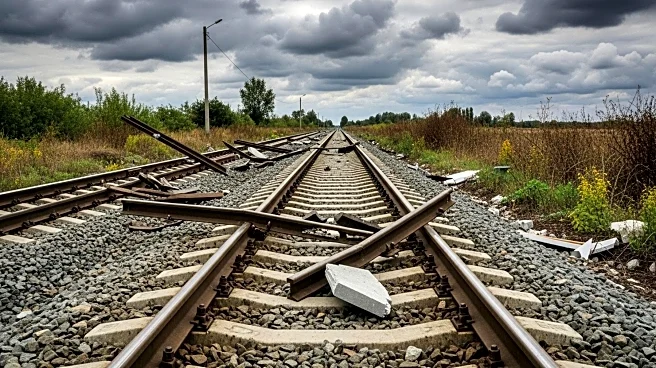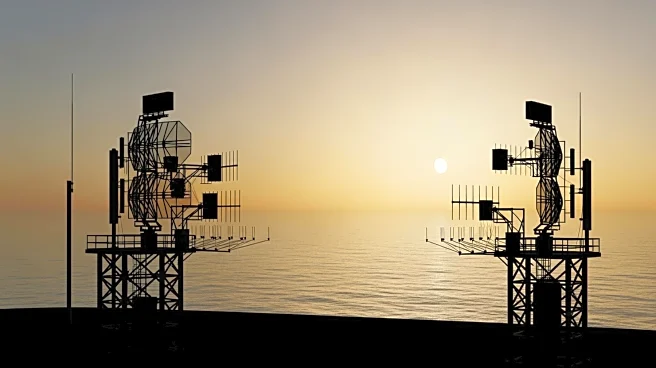What's Happening?
A Russian drone strike targeted a Ukrainian railway station in Shostka, northeast of Kyiv, injuring at least 30 people. The attack is part of a series of intensified strikes by Moscow on Ukraine's rail and power infrastructure as winter approaches. Ukrainian President Volodymyr Zelenskyy confirmed the incident, noting that emergency services are on-site assisting the injured. The strike hit two passenger trains, one local and another bound for Kyiv, according to Oleksiy Kuleba, Ukraine's deputy prime minister. The attack is seen as part of Russia's broader strategy to disrupt Ukraine's military transport and civilian infrastructure.
Why It's Important?
The drone strike underscores the ongoing conflict between Russia and Ukraine, highlighting the strategic importance of Ukraine's railway network for military logistics. The attacks on infrastructure are seen as attempts by Russia to weaken Ukraine's defense capabilities and civilian morale by targeting essential services like transportation and power. This escalation could further strain international relations and impact global energy markets, as Ukraine is a key transit route for energy supplies. The humanitarian impact is also significant, with civilians facing potential shortages of heat, light, and water during the winter months.
What's Next?
Ukraine is likely to seek further international support and assistance to bolster its defense capabilities and infrastructure resilience. The ongoing attacks may prompt additional sanctions or diplomatic actions against Russia by Western nations. Ukraine's government will need to prioritize the repair and protection of critical infrastructure to mitigate the impact on civilians. The international community will be closely monitoring the situation, with potential implications for regional stability and security.
Beyond the Headlines
The continued targeting of civilian infrastructure raises ethical and legal questions about the conduct of warfare and the protection of non-combatants. The attacks may lead to increased scrutiny and calls for accountability under international law. The conflict also highlights the broader geopolitical tensions in Eastern Europe and the role of international alliances in addressing such crises.










